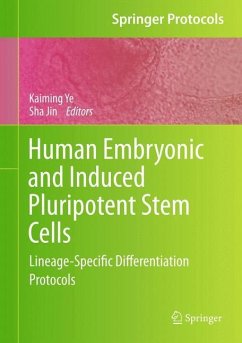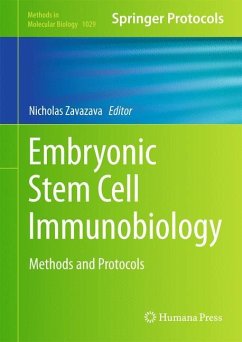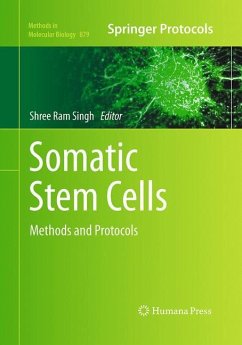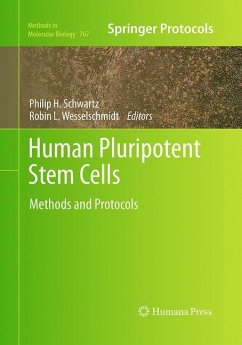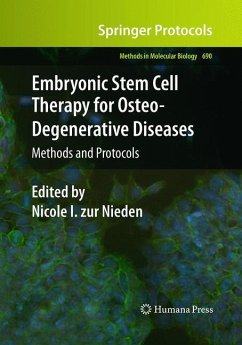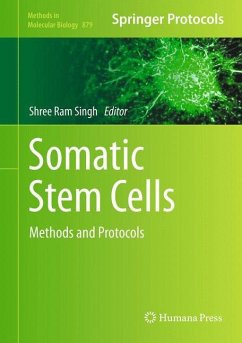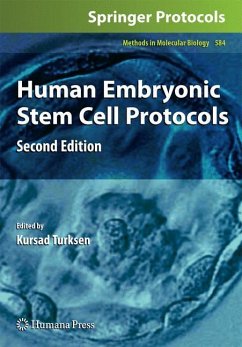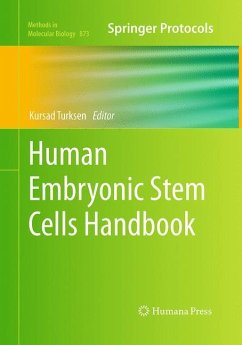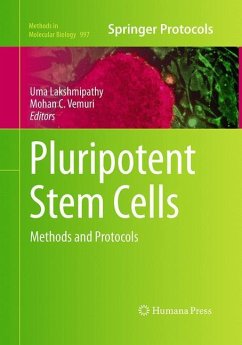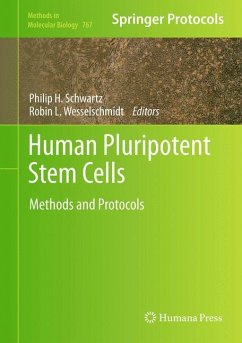
Human Embryonic and Induced Pluripotent Stem Cells
Lineage-Specific Differentiation Protocols
Herausgegeben: Ye, Kaiming; Jin, Sha
Versandkostenfrei!
Versandfertig in 6-10 Tagen
151,99 €
inkl. MwSt.

PAYBACK Punkte
76 °P sammeln!
Because of the huge potential of human embryonic stem (hES) cells, especially the newly developed human induced pluripotent stem (hiPS) cells, in disease treatment and life quality improvement, enormous efforts have been made to develop new methodologies to translate lab discoveries in stem cell research into bed-side clinical technologies. In Human Embryonic and Induced Pluripotent Stem Cells: Lineage-Specific Differentiation Protocols, experts in the field present a comprehensive collection of protocols designed for labs around the world. The topics covered in this detailed volume include te...
Because of the huge potential of human embryonic stem (hES) cells, especially the newly developed human induced pluripotent stem (hiPS) cells, in disease treatment and life quality improvement, enormous efforts have been made to develop new methodologies to translate lab discoveries in stem cell research into bed-side clinical technologies. In Human Embryonic and Induced Pluripotent Stem Cells: Lineage-Specific Differentiation Protocols, experts in the field present a comprehensive collection of protocols designed for labs around the world. The topics covered in this detailed volume include techniques used for maintenance of hES and iPS cells in either small or large scale, techniques for directing hES and iPS cell lineage specification, techniques for enhancing the maturity of differentiated hES and iPS cells within three-dimensional scaffolds, techniques for reprogramming adult cells into iPS cells, techniques for generating patient-specific iPS cells, and techniques for translating hES and iPS cell research into new therapies. Chapters include lab ready protocols with tips on troubleshooting and avoiding known pitfalls.
Wide-ranging and authoritative, Human Embryonic and Induced Pluripotent Stem Cells: Lineage-Specific Differentiation Protocols will be a tremendous aid for researchers and students who wish to explore these areas and transform their discoveries into the next generation of regenerative medicine and tissue engineering technologies.
Wide-ranging and authoritative, Human Embryonic and Induced Pluripotent Stem Cells: Lineage-Specific Differentiation Protocols will be a tremendous aid for researchers and students who wish to explore these areas and transform their discoveries into the next generation of regenerative medicine and tissue engineering technologies.





